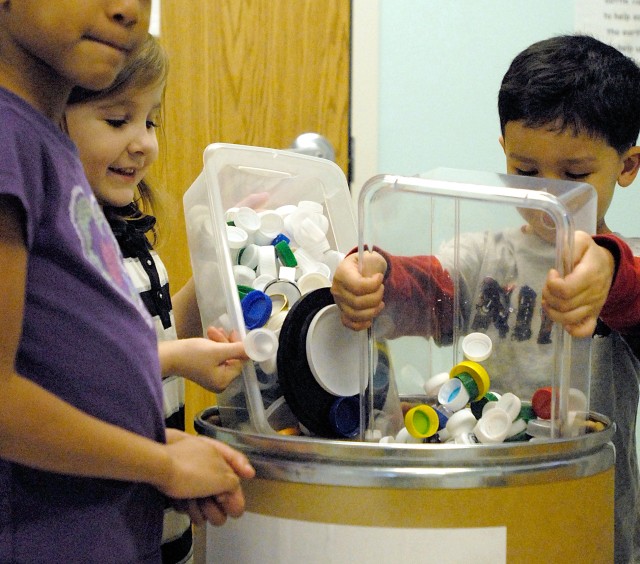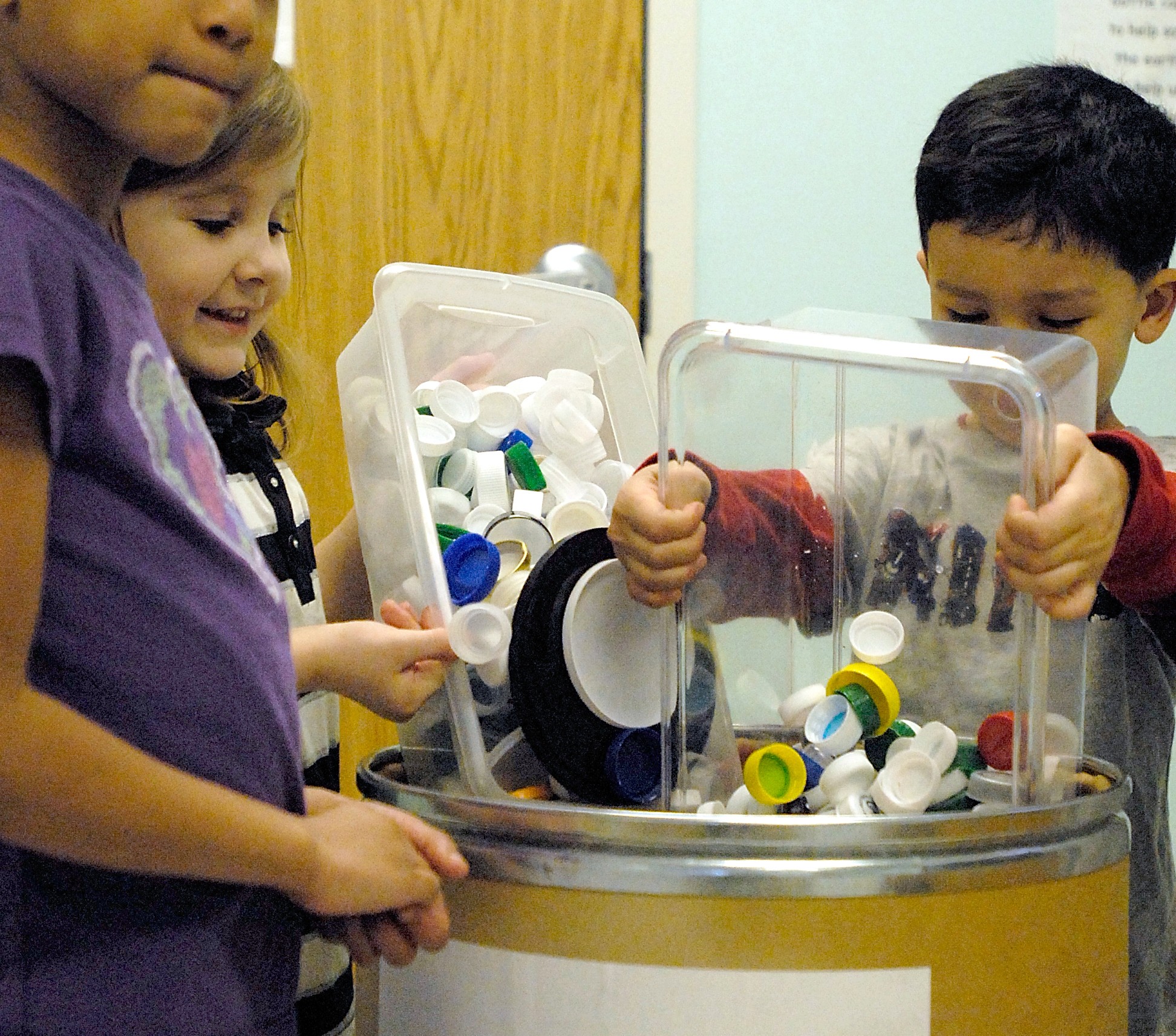JOINT BASE LEWIS-McCHORD, Wash. -- It all started with a bottle cap. Well, about 400 bottle caps, to be exact.
Three years ago, Shannon Clark made a doormat from the caps of plastic bottles, which she couldn't recycle in her home state of Ohio. Today she runs a small business that makes mats out of bottle tops from all over the United States, including Joint Base Lewis-McChord.
"I've never really done anything like this in my life," Clark said. "But this has just really taken off."
To the average recycler, plastic is plastic, whether it's the bottle or the cap. But in reality, many recycling programs - including JBLM's - don't recycle the tops.
Not only are they made out of a different grade of plastic, which melts at a different temperature, the caps tend to get screened out in recycling center's sort systems, said Charlie Maxwell of the Washington State Recycling Association.
The bottle caps end up in landfills or even the ocean, and once they arrive, the caps are there to stay. The most commonly used kinds of plastics never fully breakdown, according to the National Oceanic and Atmospheric Administration's Marine Debris Program. Factor in the amount of plastic used today, and unrecycled caps have quite an impact.
Between 1960 and 2007, the amount of plastic in the solid waste stream increased from 1 to 12 percent, according to the Environmental Protection Agency. In 2009, the United States generated 13 million tons of plastics as containers and packaging alone.
These plastics cause problems for wildlife, and might even absorb contaminants that in turn leach into rivers and oceans, according to NOAA.
When the scale of the problem sank in, Clark started saving her bottle caps. After a while, though, she had to figure out what to do with them.
"I'm kind of a crafty person, and I decided to make something out of them, which was a doormat," she said.
Before long people started requesting mats of their own, and Clark started collecting caps from friends and family to keep up with the demand. Each doormat uses approximately 400 caps.
In 2009 she founded The ReCap Co. to sell the mats, and began stockpiling bottle caps sent in by individuals and groups around the U.S. Any plastic caps that can't be used in the doormats are recycled in other ways, to reinforce car bumpers for example, so they don't end up in landfills.
At about the same time, Edna Iris De Rosa started encouraging children at JBLM's North Fort Youth Center, where she was working as a child and youth program assistant, to hang on to their bottle caps rather than throw them away. They collected them all summer long - and when she transferred to North Fort Child Development Center in January, the kids kept going.
"They just needed someone to start it, I guess," De Rosa said.
She figured since she had started them collecting caps, she'd better find someone who would take them. With the help of a friend, she found The ReCap Co. online, and in April 2010 De Rosa received six collection bins that she distributed to centers around JBLM.
For the past 10 months children, parents and employees at the six locations have been filling the bins, collecting about 10,000 from North Fort CDC alone. Many were collected by the preschoolers in North Fort CDC's Module No. 8.
"(We collect the caps) so we can save the world and make the oceans feel good," said Leela Rowe, 4.
For De Rosa, making a positive difference with the children is what it's all about.
"(I do it) so they can be responsible citizens," she said, "so they can give back to the planet and to the earth - and to help."
De Rosa personally drives to each of the six centers to collect the bottle caps and ships them to The ReCap Co. in Ohio.
There Clark and two employees work out of her basement, filling a 12-foot by 12-foot storage
unit with caps and using a specialized tool to put the doormats together.
For her, it's a labor of love. Clark works a full-time job in addition to running The ReCap Co., and said she has given away more mats than she's sold. She estimated that she's collected more than a million caps to date.
"Just keep backing us and sending those bottle caps and we'll do what we can to make this succeed," she said. "We're not giving up on this."
Both women are looking to expand their projects. Clark has other projects in the works, including creating bottle cap mats for university showers and the bottoms of dump trucks.
As for De Rosa, she'd like to increase collections and see if she can find other ways to use the discarded caps.
"I'd like the whole (base) to get involved," she said. "Why not' We're connected."
Marisa Petrich: marisa.petrich@nwguardianl.com


Social Sharing